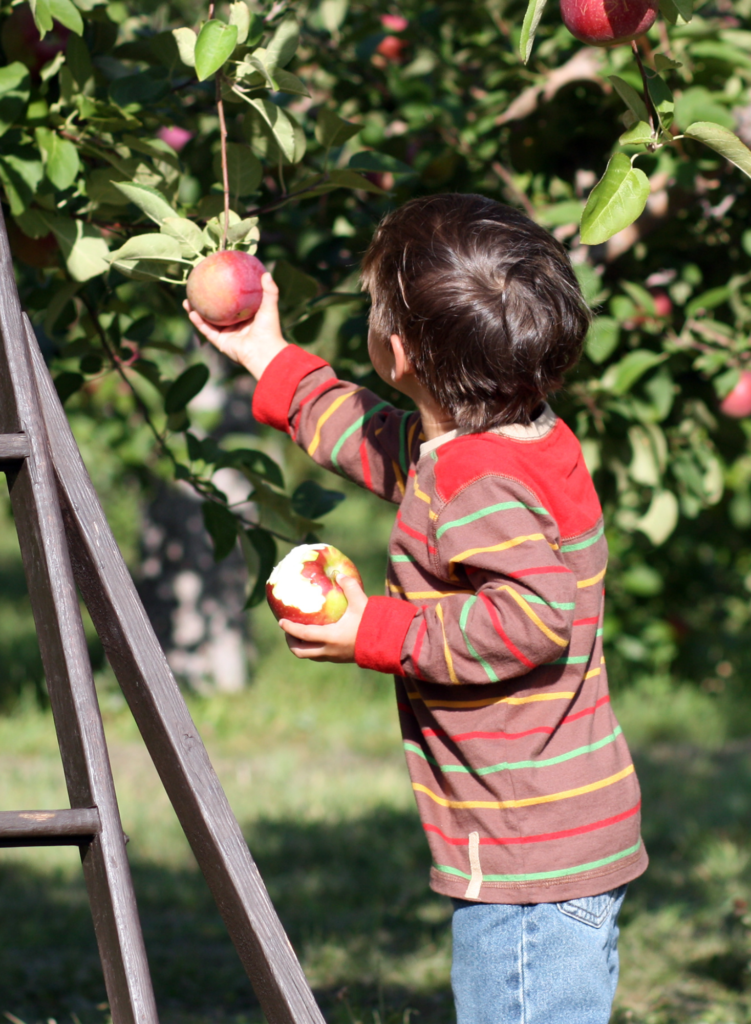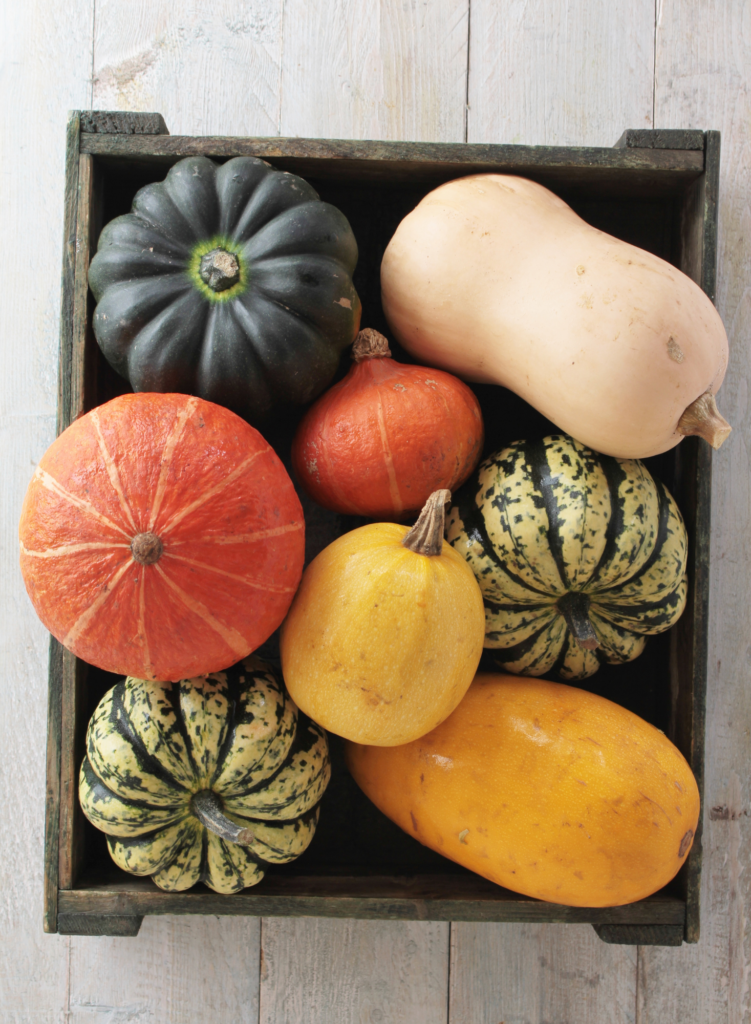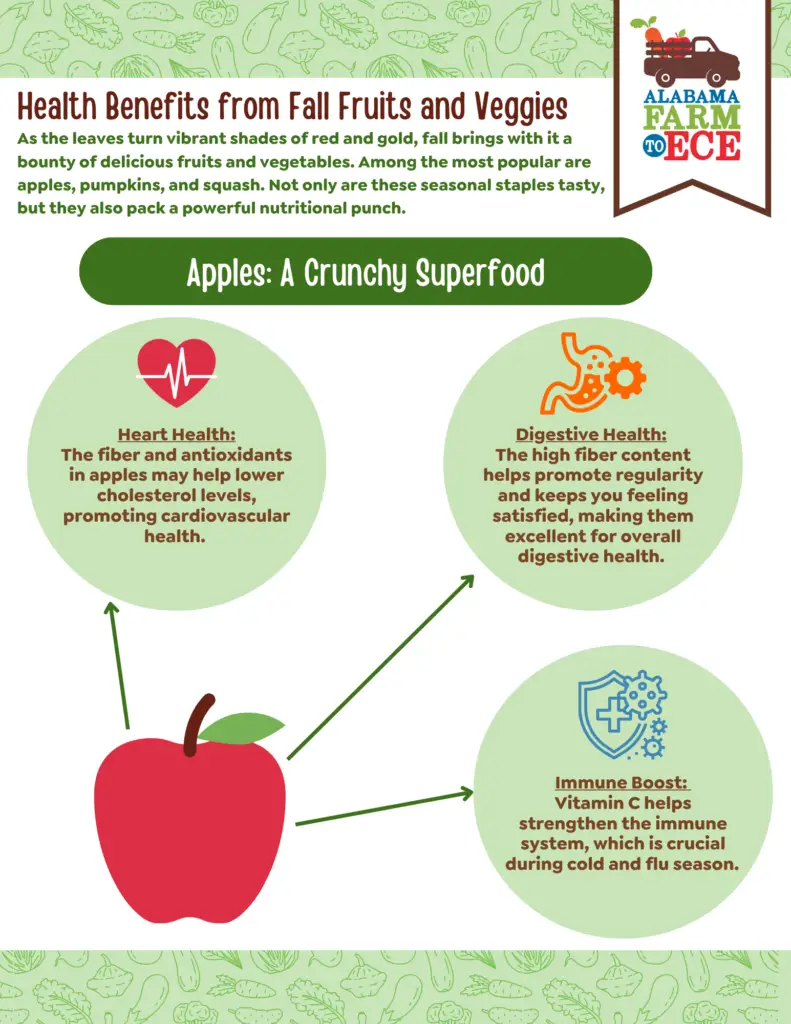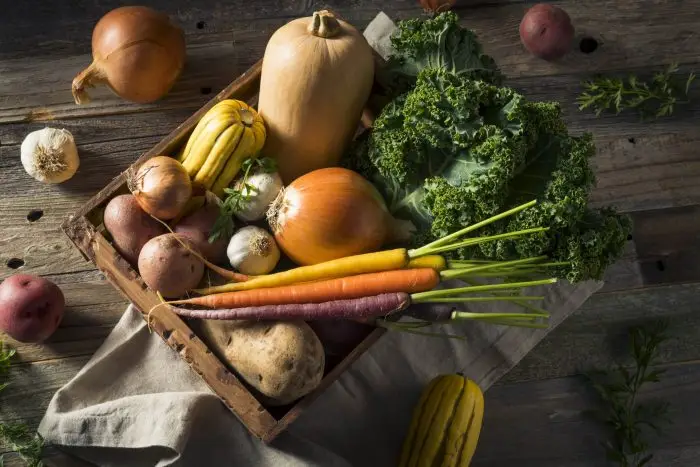This article has been written by Casey Willis, Facilitator for the AL Healthy Kids, Healthy Future program, a partner of the Alabama Farm to ECE Coalition.
As the leaves turn vibrant shades of red and gold, fall brings with it a bounty of delicious fruits and vegetables. Among the most popular are apples, pumpkins, and squash. Not only are these seasonal staples tasty, but they also pack a powerful nutritional punch. Let’s dive into the benefits of these fall favorites and discover why they deserve a place on your plate this season.
Apples: A Crunchy Superfood
Nutritional Highlights:
- Vitamins: Rich in vitamin C and a variety of B vitamins.
- Fiber: High in soluble fiber, particularly pectin.

Health Benefits:
- Heart Health: The fiber and antioxidants in apples may help lower cholesterol levels, promoting cardiovascular health.
- Digestive Health: The high fiber content helps promote regularity and keeps you feeling satisfied, making them excellent for overall digestive health.
- Immune Boost: Vitamin C helps strengthen the immune system, which is crucial during cold and flu season.
Tip: Enjoy apples raw, in salads, or baked into healthy desserts. Experiment with different varieties like Granny Smith for tartness or Honeycrisp for sweetness.
Pumpkins: A Nutritional Powerhouse
Nutritional Highlights:
- Vitamins: Loaded with vitamin A (from beta-carotene), vitamin C, and potassium.
- Antioxidants: Rich in antioxidants that help fight inflammation.

Health Benefits:
- Vision Health: The high levels of beta-carotene convert to vitamin A in the body, supporting good vision and eye health.
- Skin Benefits: Antioxidants and vitamins in pumpkin can help maintain healthy skin and may even improve complexion.
- Digestive Health: Pumpkins are rich in fiber, which supports digestive health and helps you feel fuller for longer, making them a nutritious and satisfying addition to your diet.
Tip: Use pumpkin in soups, smoothies, or baked goods. Don’t forget to roast the seeds for a crunchy, nutritious snack!
Squash: A Versatile Vitamin Boost
Nutritional Highlights:
- Vitamins: Excellent source of vitamins A and C, as well as several B vitamins.
- Minerals: Contains magnesium, manganese, and potassium.

Health Benefits:
- Digestive Health: The fiber content in squash supports healthy digestion and regularity.
- Anti-Inflammatory: The antioxidants present can help reduce inflammation in the body, which is beneficial for overall health.
- Energy Boosting: The complex carbohydrates in squash provide sustained energy, making it a great addition to meals.
Tip: Experiment with different types of squash, like butternut, acorn, or spaghetti squash. They can be roasted, mashed, or used in casseroles.
Conclusion
As you enjoy the crisp air and changing colors of fall, make sure to include these nutrient-dense fruits and vegetables in your meals. Apples, pumpkins, and squash not only enhance the flavors of your dishes but also contribute significantly to your overall health. So, grab your basket and head to the local orchard, farm, or farmers’ market to celebrate the season’s harvest! If you are unable to access these delicious fruits and vegetables fresh, consider substituting with frozen and canned options. These can be more accessible and still maintain the nutritional value found in these fall produce choices. Your body will thank you for it!


